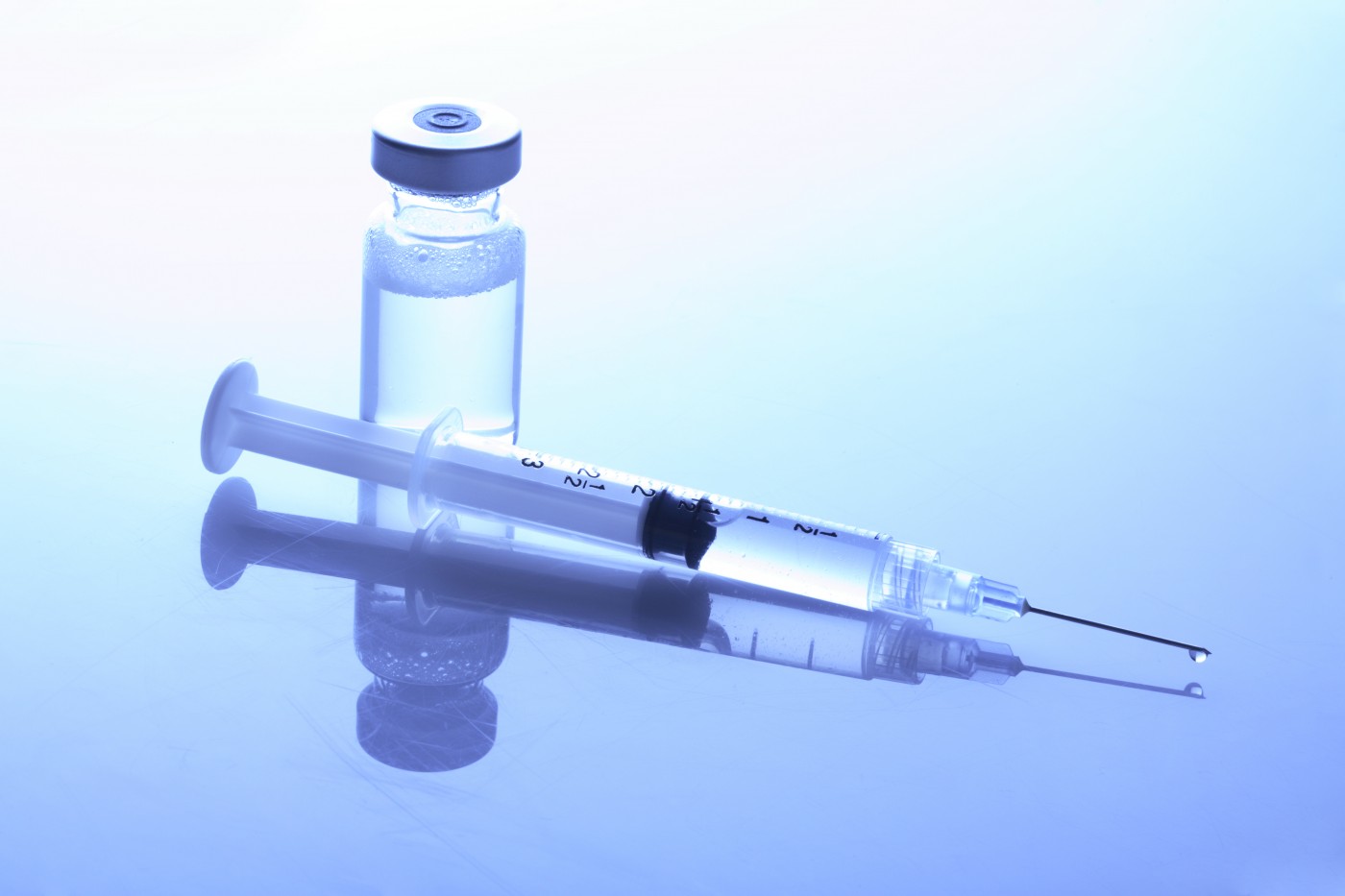 Researchers at Duke’s Cancer Institute (DCI) and the Preston Robert Tisch Brain Tumor Center have made a remarkable discovery that may have direct implications on how solid cancerous tumors are successfully treated in the future. Their study entitled “Tetanus toxoid and CCL3 improve dendritic cell vaccines in mice and glioblastoma patients” tested an innovative theory that a tetanus shot may increase the effectiveness of a vaccine used to treat lethal brain tumors, leading to improved patient survival. The results were published this week in the journal Nature.
Researchers at Duke’s Cancer Institute (DCI) and the Preston Robert Tisch Brain Tumor Center have made a remarkable discovery that may have direct implications on how solid cancerous tumors are successfully treated in the future. Their study entitled “Tetanus toxoid and CCL3 improve dendritic cell vaccines in mice and glioblastoma patients” tested an innovative theory that a tetanus shot may increase the effectiveness of a vaccine used to treat lethal brain tumors, leading to improved patient survival. The results were published this week in the journal Nature.
Background Terminology:
- Glioblastoma: Most common and highly aggressive form of glioma (brain cancer)
- Antigen: is any foreign substance such as viruses, that causes your immune system to respond by producing antibodies to get rid of it
- Dendritic Cells: also known as “antigen presenting cells” for their main function is to process antigen material and present it to immune system cells which initiates the appropriate response
- Cancer Vaccine: these vaccines are designed to work by activating specific immune system components (B cells) and directing them to recognize and target specific types of cancers by introducing certain antigens into the body
Progress in the successful treatment of glioblastoma has been gravely slow over the last decade. Patients diagnosed with this fatal disease are still most often given a timeline of less than 15 months to live, even with treatment.
In recent years it was discovered that glioblastoma tumors harbor a strain of cytomegalovirus (CMV) that is not present in the surrounding brain tissue. This discovery redirected research to focus on using immunotherapy techniques to target this CMV antigen. One such technique is a therapeutic vaccine that injects dendritic cells directly into patients so they coax the immune system to search and attack the CMV saturated tumor. This technique worked well, but it has not had the significant impact on patient survival that researchers hoped for.
About This Study
The investigators devised a way to boost the inefficiencies observed when using the dendritic cell technique by conducting an experimental treatment using a tetanus vaccine booster to prime the immune system prior to administration of dendritic cells targeting CMV. They called this approach the “tetanus pre-conditioning technique,” and tested it in 6 patients with the following results:
- Patients given the tetanus shot showed a significant increase in survival from the time of pre-conditioning compared to patients receiving just the dendritic cell therapy, with half living from 51 to 101 months, compared to 11.6 months for patients who only received the dendritic cell treatment
- Two patients who received the tetanus shot survived for over 36 months
- One patient who received the tetanus shot has survived for over 8 years
- There were no significant side effects observed with the therapy
In a press release about the study’s remarkable findings, Dr. John H. Sampson, MD, PhD, MBA, MHSc, chief of neurosurgery at Duke and lead study author, stated “While dendritic cell vaccines have shown some promise in the treatment of patients with advanced cancers, including glioblastoma, the dynamics of this process have not been well understood. Our work identifies an immunologic interaction whereby recall responses to one antigen — tetanus — can influence the migratory capacity of dendritic cells loaded with different antigens – CMV…a way to enhance cancer vaccines which dramatically improves their efficacy without significant side effects.”
The authors do caution that these findings are from a small sample size of less than 10 patients receiving treatment and that confirmatory studies are warranted.
Commenting on the results, Kristen Batich, a Duke graduate student, neurosurgery candidate, and study co-author, exclaimed, “The tetanus shot “operated like a tornado warning siren and it was a great opportunity to use tetanus to sort of awaken the immune system.”
Duke is in the process of licensing the tetanus pre-conditioning vaccine technology to a North Carolina pharmaceutical company, Annias Immunotherapeutics Inc.
In a recent company press release, Dr. Reiner Laus, M.D., President and Chief Executive Officer of Annias Immunotherapeutics, Inc., stated, “We congratulate Dr. Sampson and his collaborators at Duke Cancer Institute and the Preston Robert Tisch Brain Tumor Center at Duke on their outstanding and very exciting work. This approach to treatment has the potential not only to improve therapy for patients with a highly lethal brain cancer, but also other solid tumor cancers including breast, colorectal and prostate cancers. Moreover, the discovery that preconditioning the immune system through vaccination to an unrelated antigen like tetanus can greatly increase the efficacy of a subsequently administered therapeutic vaccine offers the potential to dramatically improve all vaccination approaches.”


